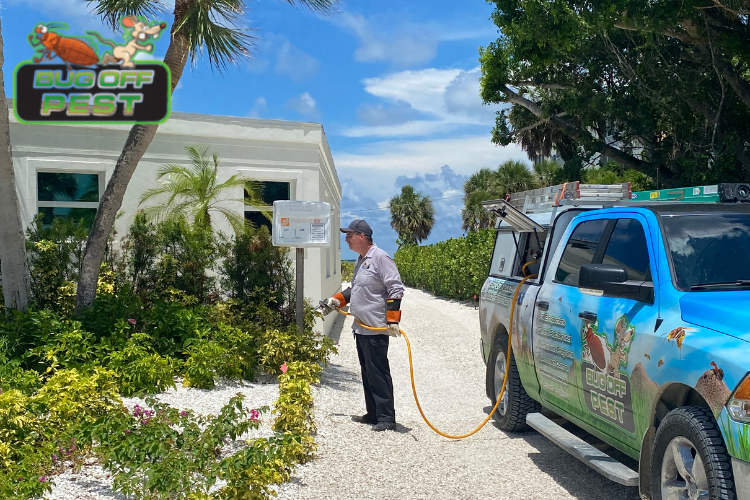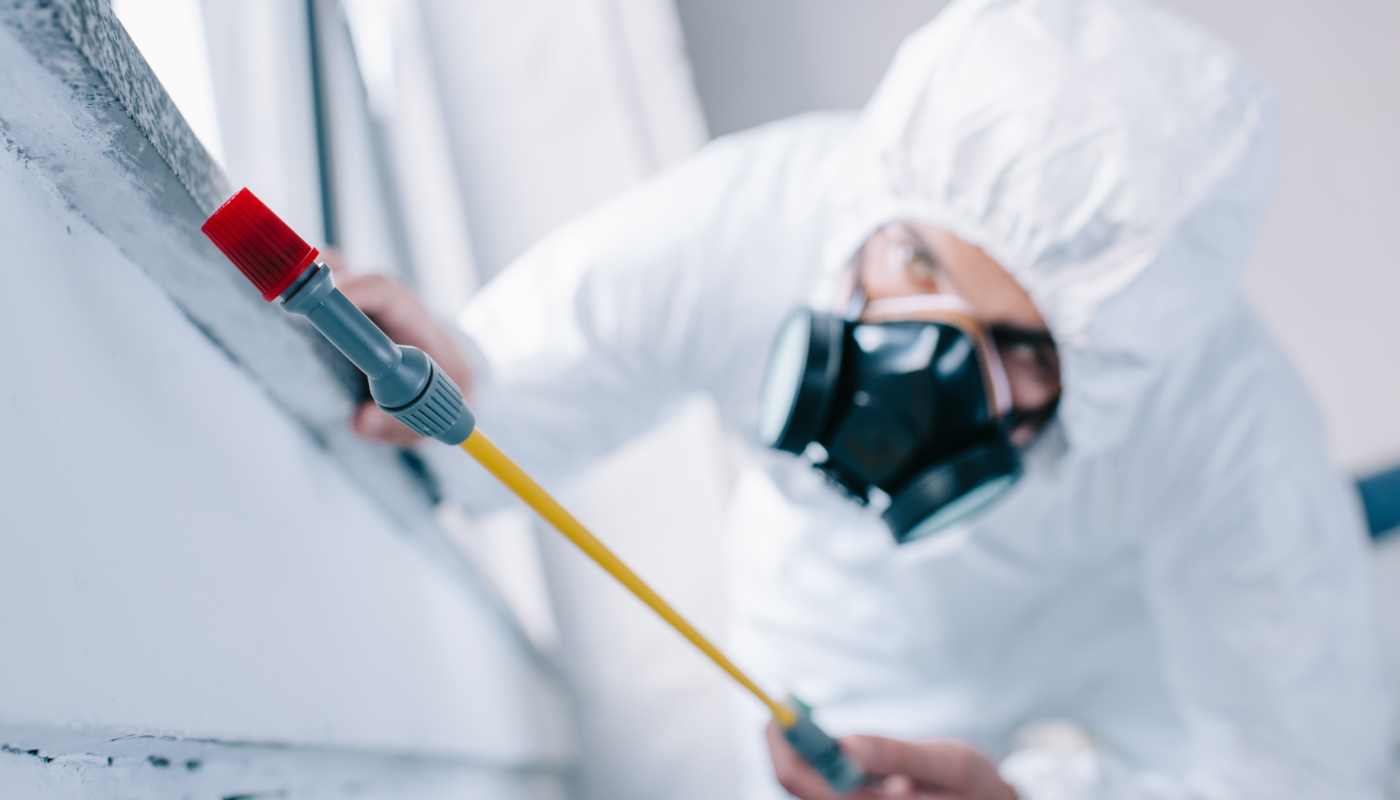Get Rid of Mosquitoes with Expert Mosquito Control Services in Port Charlotte
Learn More About the Newest Advancements in Bug Control and Just How to Apply Effective Treatment Solutions
In current years, the area of bug control has seen substantial improvements, driven by the need for reliable and lasting therapy services. Cutting-edge methods such as Integrated Insect Management (IPM) integrate environment-friendly techniques with advanced modern technology, improving both effectiveness and environmental duty.
Eco-Friendly Bug Control Options
Over the last few years, the demand for environmentally friendly bug control choices has actually risen as services and home owners alike look for lasting options to conventional chemical treatments. This change is driven by expanding ecological understanding and a need to lessen the health and wellness dangers connected with synthetic chemicals.

Environmentally friendly pest control approaches incorporate a variety of approaches that focus on making use of all-natural compounds and techniques. Integrated Parasite Management (IPM) is one such strategy, combining biological, cultural, and mechanical tactics to take care of insect populaces while minimizing reliance on chemicals (Wildlife removal services). This all natural method stresses prevention via habitat control and the introduction of all-natural predators, consequently fostering a balanced ecological community
One more preferred choice is the usage of herb chemicals originated from plants, which have a tendency to be much less dangerous to non-target organisms. Products like neem oil and diatomaceous earth have actually gained grip for their effectiveness in managing pests while positioning very little risks to human health and wellness and the setting.
Additionally, exclusion strategies, such as securing entry points and keeping sanitation, play a critical role in environmentally friendly pest administration. By taking on these lasting practices, services and people can effectively manage insects while advertising a healthier world for future generations.
Smart Technology in Insect Administration
Technology is improving the landscape of insect monitoring, with clever technology emerging as a pivotal force in improving performance and performance - Wildlife removal services. The combination of Net of Things (IoT) tools, man-made knowledge (AI), and information analytics is changing just how parasite control professionals come close to problems
Smart catches outfitted with sensing units can discover bug task in real-time, sending immediate alerts to operators. This permits prompt actions, lessening damage and decreasing the need for considerable therapies. In addition, AI algorithms evaluate historic information to predict pest behavior, making it possible for positive interventions based on environmental conditions and invasion patterns.
Drones and computerized lorries are also playing a considerable role in parasite monitoring, offering aerial assessments of large locations, identifying hotspots, and also dispersing targeted treatments. These modern technologies not only streamline procedures however also boost security by limiting human direct exposure to potentially harmful chemicals.
Moreover, mobile applications empower consumers to keep an eye on insect task and gain access to specialist advice, fostering a collaborative method to pest monitoring. On the whole, the adoption of clever innovation is establishing a new criterion in parasite control, emphasizing data-driven choices and sustainable practices that eventually benefit both professionals and property owners alike.
Integrated Pest Administration Methods
Integrated Insect Monitoring (IPM) employs an alternative approach to pest control, incorporating different approaches to efficiently take care of insect populaces while minimizing dangers to human wellness and the setting. IPM focuses on comprehending the pest life process, their all-natural enemies, and the environment in which they prosper.
Among the basic components of IPM is keeping an eye on pest populaces via normal evaluations and data collection. This enables the recognition of bug limits, establishing when treatment is essential. Social practices, such as crop hygiene, turning, and environment best site control, are crucial in minimizing parasite frequency and advertising plant health and wellness.
Mechanical controls, including traps and barriers, are likewise important in IPM. These techniques can literally eliminate or discourage insects without using chemicals. When necessary, the judicious application of chemical controls is employed, concentrating on targeted therapies that reduce environmental influence.
Education and partnership among stakeholders, consisting of farmers, bug control experts, and the webpage community, are crucial for the successful application of IPM techniques. By prioritizing lasting methods, IPM not just addresses pest problems but additionally promotes a healthier ecological community.
Biological Control Approaches
Numerous biological control approaches are progressively recognized for their performance in managing insect populaces while advertising ecological equilibrium. These techniques harness all-natural predators, bloodsuckers, and pathogens to decrease pest numbers without depending on artificial chemicals. The intro of ladybugs can effectively manage aphid populations, while nematodes target soil-dwelling pest larvae.
Furthermore, the usage of microbial pesticides, such as Bacillus thuringiensis (Bt), supplies an eco-friendly alternative for handling caterpillar pests. These products especially target pest species, decreasing damage to advantageous bugs and pollinators. Furthermore, conservation organic control stresses improving environments for natural enemies, such as birds and valuable insects, consequently encouraging their visibility in farming systems.
Research continues to reveal ingenious techniques within this area, such as making use of pheromones to disrupt pest mating patterns or the advancement of biocontrol agents with genetic modification. Applying these methods can lead to sustainable parasite administration techniques that mitigate the dependence on chemical treatments, inevitably cultivating much healthier environments. As recognition of these strategies expands, they are ending up being important elements of incorporated parasite monitoring (IPM) approaches, using an equilibrium between effective insect control and environmental stewardship.
DIY Insect Control Solutions
As property owners seek reliable ways to deal with pest issues, DIY bug control remedies have actually gotten popularity for their ease of access and cost-effectiveness. These techniques equip individuals to address problems making use of easily available products and methods, commonly without the requirement for professional treatment.

In addition, preserving appropriate sanitation and normal examinations can protect against bug entrance and nesting (Wildlife removal services). Straightforward techniques, such as securing cracks, getting rid of food resources, and decluttering, can substantially decrease insect populaces. Traps, both homemade and readily offered, can also offer efficient options for monitoring and regulating certain insects like pests or rats

Verdict
The assimilation of green bug control choices, smart modern technology, and ingenious management strategies offers a detailed method to reliable bug management. By welcoming Integrated Bug Administration (IPM) and making use of organic control methods, along with DIY remedies, sustainable and responsible bug control can be accomplished. These advancements not just enhance the effectiveness of insect monitoring practices yet also add to a healthier environment. Implementing these methods fosters a well balanced ecosystem while successfully addressing pest populations.
Eco-friendly insect control methods incorporate a variety of strategies that prioritize the use of natural compounds and methods. Integrated Parasite Management (IPM) is one such method, integrating biological, cultural, and mechanical techniques to handle bug populaces while lowering dependence on chemicals. As recognition of these strategies expands, they are coming to be integral elements of integrated pest management (IPM) strategies, offering a balance in between reliable insect control and ecological stewardship.
The combination of environmentally friendly parasite control options, smart technology, and ingenious administration techniques provides a detailed method to effective pest monitoring. By welcoming Integrated Bug Administration (IPM) and utilizing organic control approaches, together with DIY services, responsible and sustainable pest control can be attained.